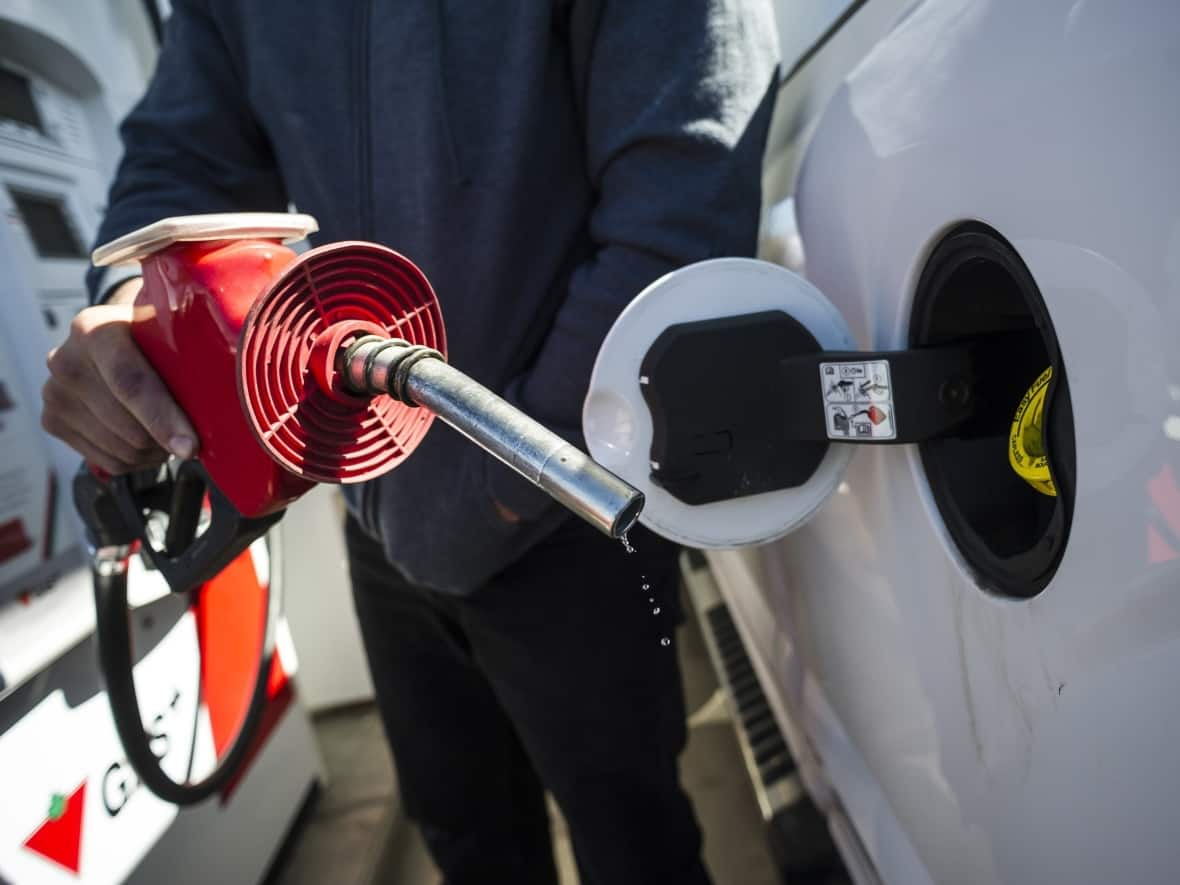N.B. now in line for federal carbon tax rebates as Higgs scraps provincial price

New Brunswickers are joining Canada's carbon-tax rebate club.
Residents of the province will begin receiving federal rebate cheques later this year after the federal government's carbon pricing system kicks in on July 1.
Premier Blaine Higgs announced Thursday he will scrap his own provincially designed price on carbon effective on Canada Day, triggering the implementation of Ottawa's so-called backstop plan.
That means quarterly federal rebate cheques adding up to more than $900 per year for a family of four, Higgs said.
"What this does right now is provide relief," Higgs said. "I would rather see no carbon tax at all. … But I don't have a choice.
"So given that, how do we get relief to people who want it right now, in their homes, at a time when inflation is higher than they've experienced, maybe in their lifetime? This will do that."
Ottawa's climate plan requires provinces to implement a carbon price that matches national standards.
Provinces that refuse are subjected to the federal government's pricing system.
The rate per litre of regular gasoline this year is 11 cents and it will rise to 14.3 cents April 1.
Higgs reluctantly complied with federal standard
But with New Brunswick switching gears, its 11-cent provincial rate will remain in place until July 1 when the higher federal rate will take effect, the premier said.
It's not clear when the first rebate cheques will arrive for New Brunswickers.

Nova Scotia, Prince Edward Island and Newfoundland and Labrador will also be subject to the federal backstop as of July 1, because they refused to adjust their provincial carbon prices to match tighter federal standards now in effect.
Ottawa said last fall the first cheques for those provinces will be sent out in July.
Higgs reluctantly adopted a provincial pricing system that complied with the federal standard in 2020, following a federal election that saw the Trudeau Liberals win a second term with six of 10 seats in the province.
Rather than rebate the provincial carbon revenue directly to consumers, Higgs cut the provincial gas tax and reduced personal income taxes over the three years his system has been in place.
Those tax cuts won't be reversed, despite the province giving up the revenue that allowed them, the premier said.
He has used the remaining carbon tax revenue to fund climate projects.
That has included mitigation projects such as raising roads and reinforcing coast lines against erosion from more frequent extreme weather. The money also helped fund a heat pump subsidy program.
Higgs says the end of the provincial carbon tax "will have an impact" on those programs.
"We will continue to have a climate fund to deal with. It just might not be as robust as it would have been," he said, though he added his government remains committed to climate action.
Aligning with public opinion
Higgs said his decision was driven in party by the perception of New Brunswickers having "that impression of cash in hand. … Our neighbours all around us now are doing that, because they've accepted the backstop."
Federal Environment Minister Steven Guilbeault tweeted earlier this year that eight out of 10 people who receive carbon tax rebates in backstop provinces "get more than they paid, and low income people will benefit the most."
Guilbeault told CBC News Thursday that he was "very pleased" by Higgs's announcement.
"I agree with him that the federal system is a very good system, and it will enable the people of New Brunswick to be supported as we transition away from fossil fuels to cleaner sources of energy."
University of New Brunswick political scientist Heather Millar, who studies climate and energy policy, said Higgs's move aligns with where public opinion appears to be.
"The return of funds directly to individuals through the carbon tax does seem to have a positive effect on people's perceptions," she said.

She believes once the other Atlantic provinces opted against revising their provincial carbon prices to comply with the federal requirement, Higgs was likely to do the same.
She also said premiers may be making a political calculation that the federal Conservatives, who have promised to repeal the federal pricing system, will win the next election.
"There seems to be generally across the country still an element of wait-and-see about to what degree carbon pricing is a done deal in the country at the federal level, should the party in power change."
Last year, when gas was at $1.70 per litre, New Brunswick Southwest Conservative MP John Williamson called on Higgs to repeal the provincial tax and accept the federal backstop.
"Right now it's those working Canadians on modest and low incomes that need the help the most and this will deliver assistance right away," he said at the time.
Williamson issued a statement Thursday saying Higgs had tried to "work in good faith" with the Trudeau government in Ottawa but the cost to New Brunswick families was too high.
"This is a big political problem for the Trudeau Liberals as more and more provinces force the federal government to go it alone on the carbon tax," he said.
In a statement, Miramichi-Grand Lake Conservative MP Jake Stewart said the Trudeau government had "forced" its tax on Higgs and vowed a Conservative government led by Pierre Poilievre would repeal it.
"Justin Trudeau has imposed his Ottawa knows best approach, allowing no room for negotiation," said Stewart, who was a minister in Higgs's cabinet when the provincial tax was adopted.
Stewart's statement on behalf of the Conservative opposition in Ottawa had no reference to the federal rebate or Higgs's 2020 decision to not offer one.
New Brunswick becomes the eighth province subject to the federal backstop. British Columbia and Quebec will be the only two with their own provincial pricing systems.
The separate provincially designed carbon pricing system for large industry will remain in place, Higgs said.


